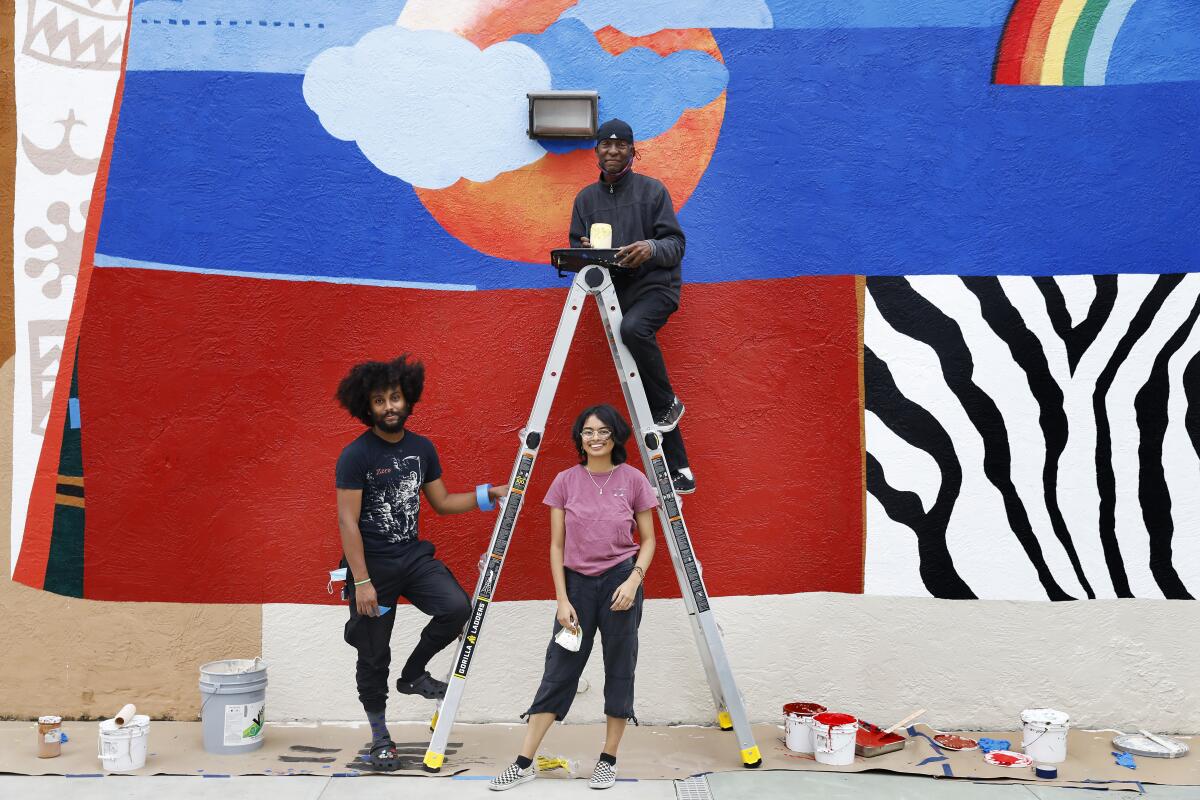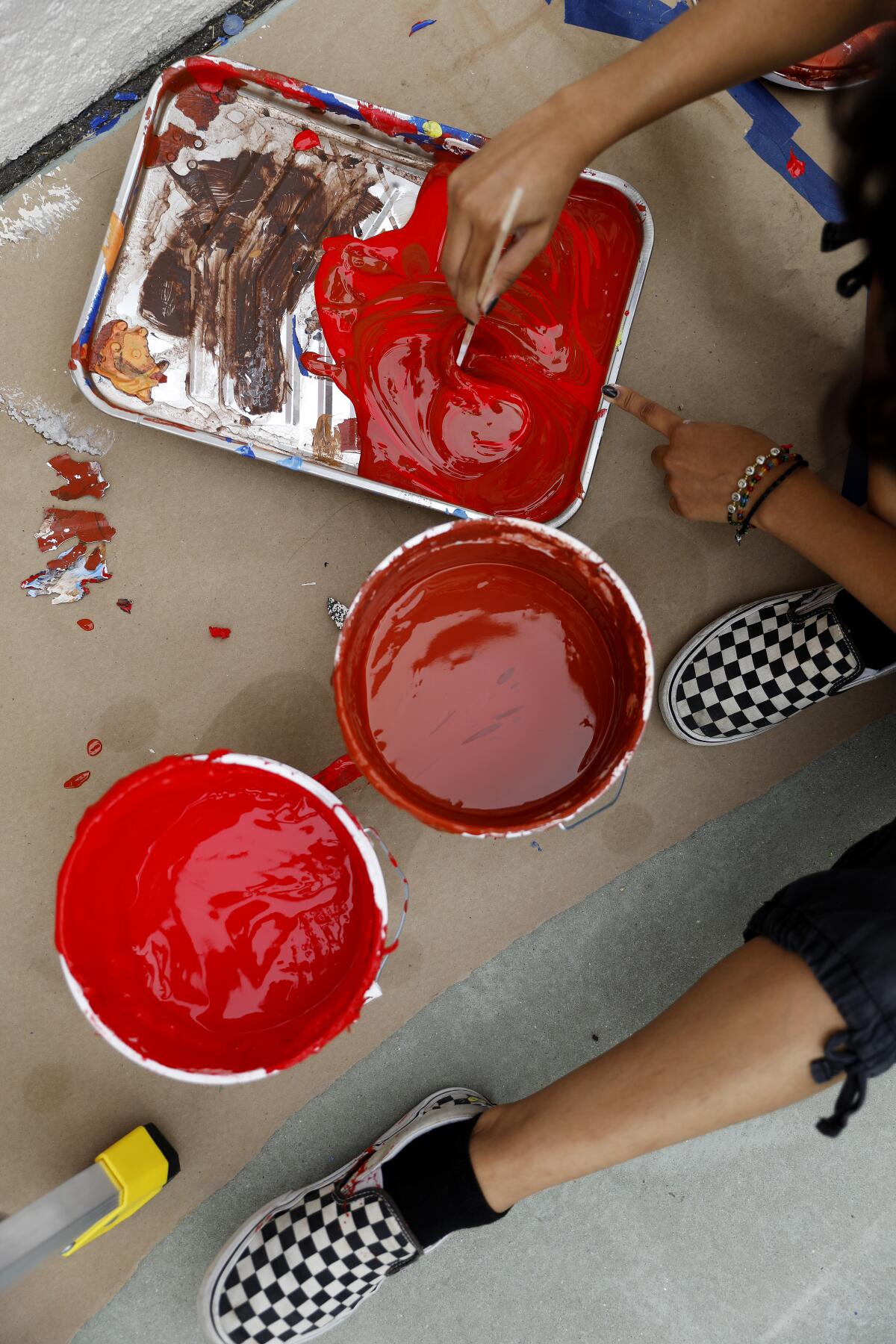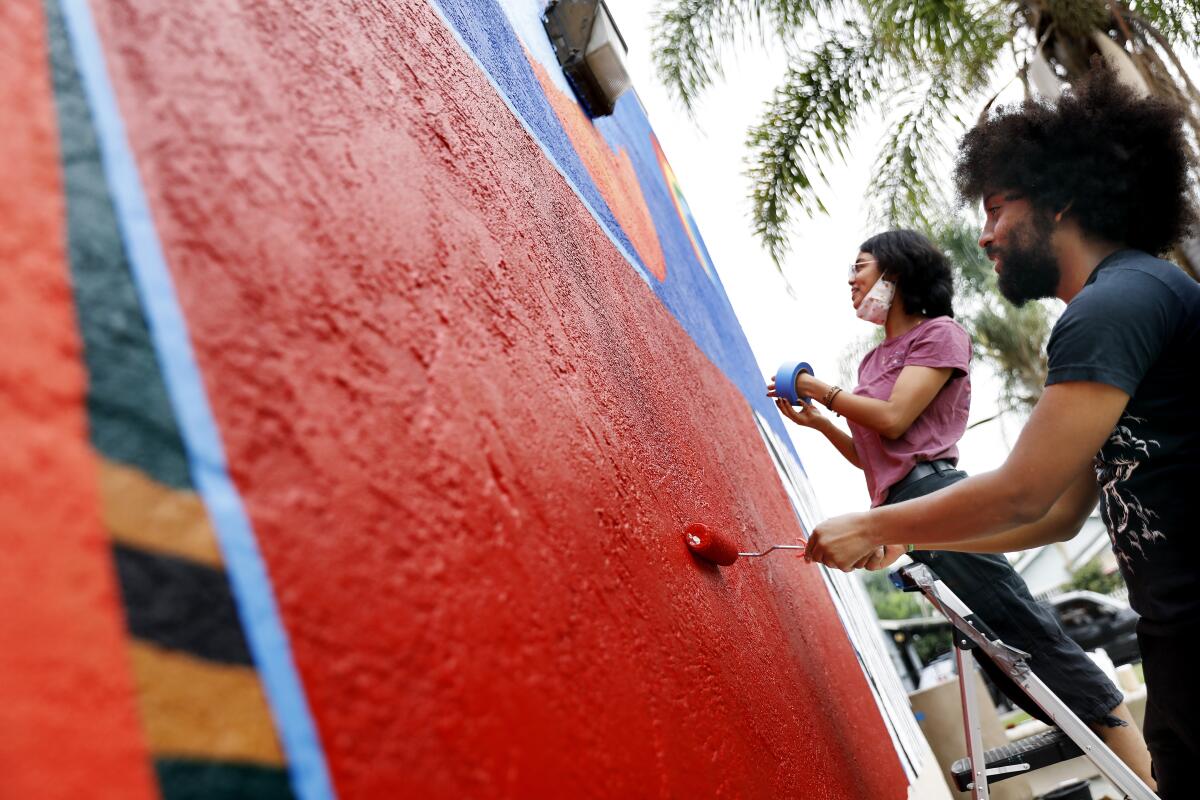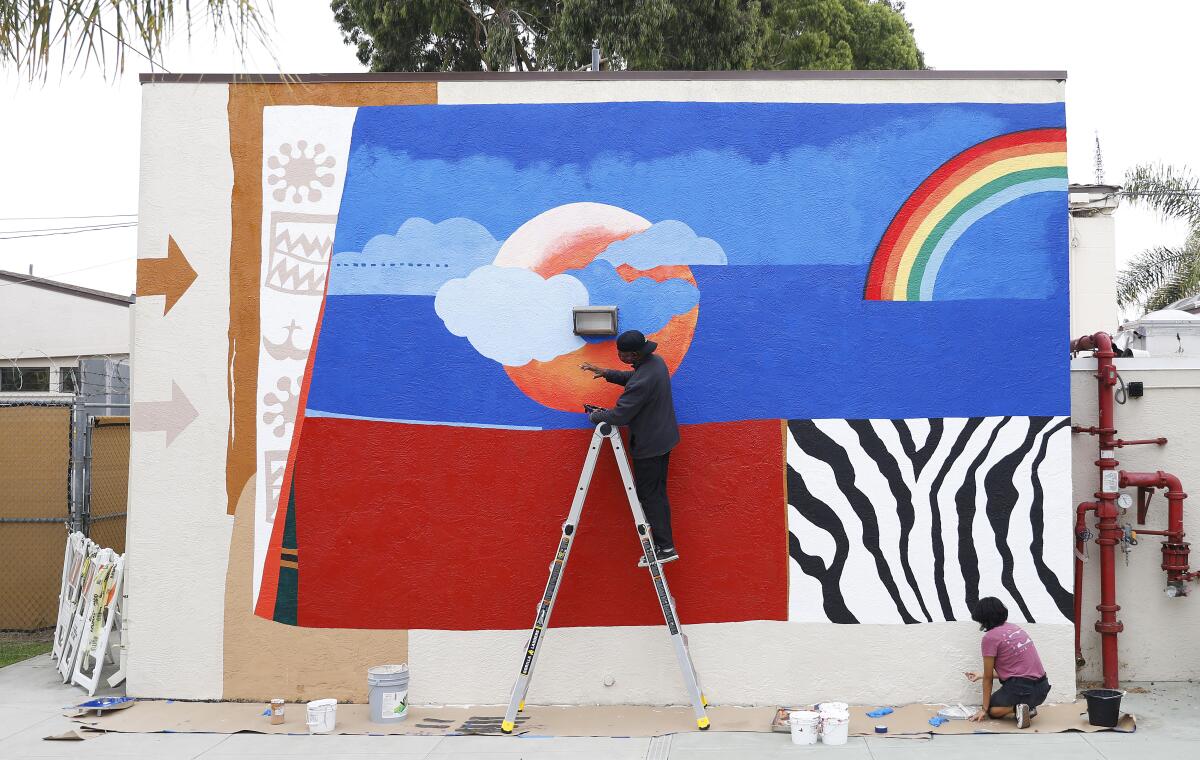A Watts Towers mural faded in plain sight. Three generations of artists bring back its zing

The mural on the side of the Watts Towers Arts Center Campus building is small and seemingly simple at first glance, charmingly childlike. Brightly colored abstract shapes and symbols include arrows, zigzags and blooms. A cheery rainbow is at the top, a patch of zebra stripes at the bottom.
But the simplicity of the mural belies the scope of its significance, said Alonzo Davis, the 79-year-old artist who painted it more than 40 years ago.
Davis grew up in Leimert Park, where he co-founded the now-defunct Brockman Gallery, an important influence in the Black Arts Movement from the 1960s to 1980s. He painted the mural in 1980 as a tribute to his close friend, the late assemblage artist and former Watts Towers Arts Center director John Outterbridge, who oversaw the campus from 1975 to 1992.
“It represents his spirit and sense of community, symbols that reflected my thinking about him,” Davis said in an interview from Maryland, where he now lives. “We were kindred spirits, both visionary types who had strong feelings about the impact of arts on the community. The mural is a tribute to his accomplishments.”
The mural had fallen into disrepair, its imagery so faded from the sun that some shapes were barely recognizable. On a trip to L.A. in 2017 to restore one of his murals throughout the city — Davis painted about a dozen and spearheaded the 1984 Olympic Arts Festival murals along the Harbor and Hollywood freeways — Davis visited Watts Towers and noted what terrible shape the work was in. It gnawed at him, how fragile the mural was, slowly and quietly deteriorating in plain sight.
When Outterbridge died last year at 87, Davis committed to restoring the work, if from afar.
“The mural may have faded, but his memory won’t,” Davis said.

Davis raised $15,000 on the fundraising platform Fractured Atlas. It wasn’t hard, he said, as Outterbridge — who co-founded the Simon Rodia Watts Towers Jazz Festival and founded the Watts Towers Day of the Drum Festival — was an inspiration to so many artists. In about five months the campaign reached its $10,000 goal; a combination of artists, collectors, gallery owners, friends, activists and Outterbridge fans contributed from $5 to $5,000 each, Davis said.
Restoration is underway and will be complete this month.
Davis said he’s too old to restore the work personally — “I can’t climb scaffolding anymore.” But he brought on 62-year-old artist Michael Massenburg, a mentee of Outterbridge’s, to lead the restoration.
Bringing younger artists into the fold was central to Outterbridge’s vision, said Watts Towers Director Rosie Lee Hooks. So she and Massenburg decided to make the restoration a multigenerational effort, the power washing and painting and clear-coating a performative ode to the man the work honors.

Hooks connected Massenburg with Allyson Dixon-Duarte, 20, and Patrick Taylor, 29, both of whom teach at the CalArts/Sony Pictures Media Arts Program at the Watts Towers Arts Center, to help.
“You have generational stuff going on here,” Hooks said. “It is so important to get those young people involved so they understand the history — and we have to continue to say John Outterbridge’s name because he did so much for this community, so much for the arts, and he still inspires us on a daily basis.”
Massenburg, a prolific artist who grew up in South L.A. and has created murals, collages and tile mosaics for L.A. Metro, ESPN and the Forum in Inglewood, among other places, said Outterbridge was instrumental in his decision, at 30, to become an artist.
“I didn’t know about art classes, galleries, museums — it was a different time,” Massenburg said. “We didn’t have video games, cellphones. I just worked on art, alone, at home. John shared information with me, connected me to people. He created a web of family working together, a tight-knit art community.”

Dixon-Duarte, who lives in Watts and has been taking classes or teaching at the Watts Towers Arts Center “half my life,” said Outterbridge’s commitment to arts education for youth made all the difference in her life.
“If it hadn’t been for him, I wouldn’t be here now,” she said of Outterbridge, who also was a founding director of the Communicative Arts Academy in Compton from 1969 to 1975.
“It’s cool to be trusted with something that’s been here so long,” Taylor added of the mural restoration. “It’s artists helping artists, keeping the culture going.”
Massenburg doesn’t take this sort of cross-generational collaboration lightly, he said.
“Through John and his mentorship, the torch was passed to me,” Massenburg said. “Now I’m passing the torch to these younger artists. Sharing this experience with them is how we keep the linkages going. This feels like John is still here.”
Hagy Belzberg designed the museum founded by Holocaust survivors. His $45 million expansion will heighten its mission and prominence on the landscape.
More to Read
The biggest entertainment stories
Get our big stories about Hollywood, film, television, music, arts, culture and more right in your inbox as soon as they publish.
You may occasionally receive promotional content from the Los Angeles Times.












